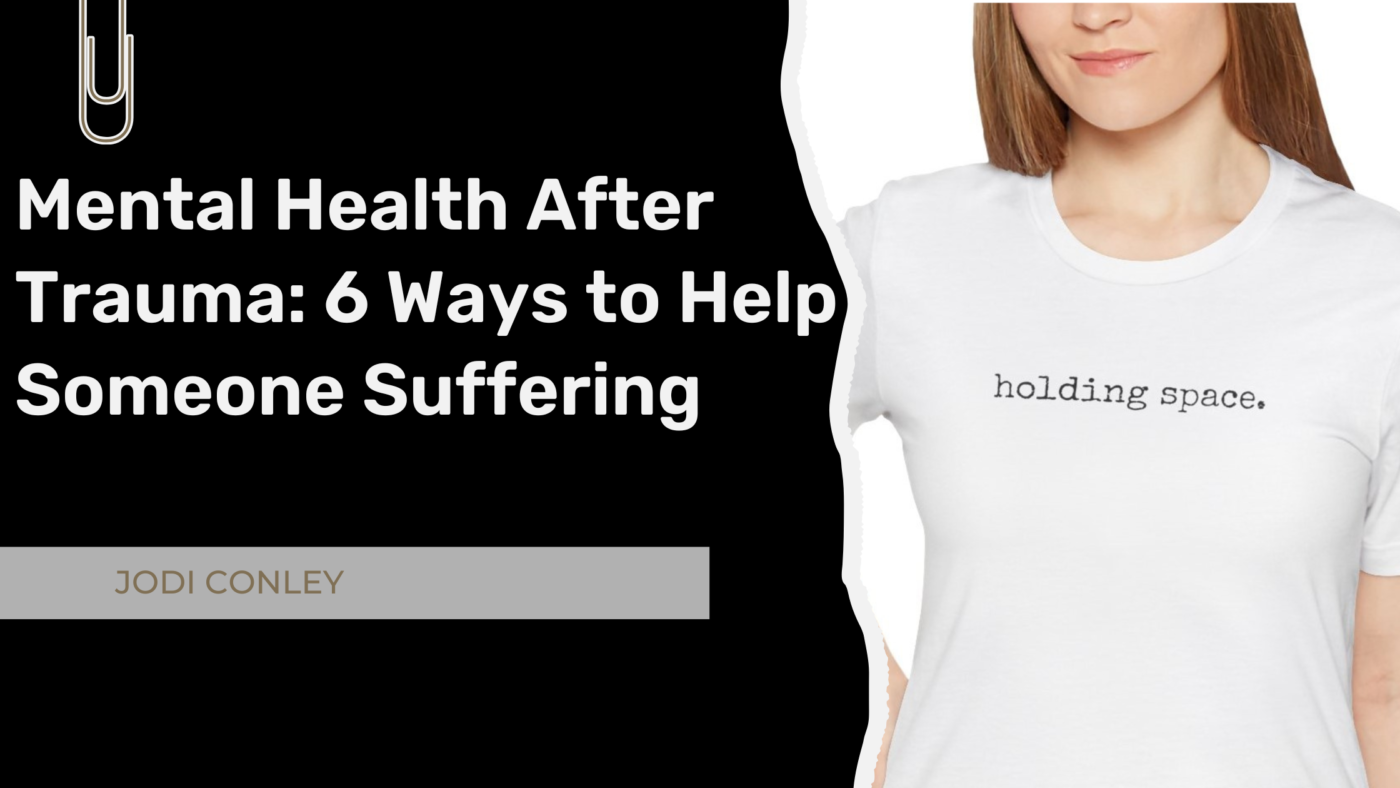In a world where trauma can strike unexpectedly, the importance of mental health awareness cannot be overstated. Whether it’s natural disasters, loss, violence, car accidents, or personal crises, trauma can leave deep emotional scars. It’s crucial for us to understand how to recognize signs of distress in ourselves and others, especially when a loved one is going through a tough time so we can support them with mental health after trauma.
Signs of Struggling with Mental Health After Trauma
When someone experiences trauma, their mental health can be significantly impacted. Here are some signs to look out for:
1. Emotional Responses: Feeling overwhelmed, sad, or irritable can be common. Some may withdraw and isolate themselves, while others might express anger or frustration regularly.
2. Changes in Behavior: If someone suddenly stops engaging in activities they once enjoyed or struggles to maintain their daily routines, it may indicate underlying issues.
3. Physical Symptoms: Trauma can manifest physically. Headaches, fatigue, or unexplained aches and pains can be signs of mental distress.
4. Difficulty Concentrating: Individuals may find it hard to focus or make decisions. They might seem distant or disconnected from their surroundings.
5. Increased Anxiety: If someone experiences heightened anxiety or panic attacks following a traumatic event, this is a significant red flag that should not be overlooked.
6. Nightmares or Flashbacks: For many, particularly those experiencing PTSD (Post-Traumatic Stress Disorder), reliving the traumatic event can feel like a never-ending cycle of fear and anxiety.
Understanding PTSD and the Symptoms
PTSD is a serious mental health condition that can develop after a person experiences or witnesses a traumatic event. Concerningly, it affects millions of individuals each year and can have a profound impact on daily functioning and overall well-being.
Symptoms of PTSD include intrusive memories, avoidance of reminders of the trauma, negative mood changes, and alterations in arousal and reactivity, such as being easily startled or feeling tense. Understanding these symptoms is vital to supporting those who suffer from this condition.
How to Help Those Suffering with Mental Health After Trauma
Supporting someone through their trauma can be challenging, but your presence can make a world of difference. Here are some ways to help:
1. Listen Without Judgment: Be a safe space. Allow them to share their thoughts and feelings without fear of being judged. Sometimes, just knowing someone is there to listen is enough.
2. Encourage Professional Help: Suggest they seek therapy or counseling from a qualified mental health professional. This step can often be crucial for healing.
3. Educate Yourself: Knowing more about trauma and PTSD can help you understand what your loved one is experiencing. This knowledge can foster empathy and open the door for more effective support.
4. Check-In Regularly: A simple text or message can remind them they’re not alone and that you care. Consistency in your support can help build their confidence in opening up.
5. Practice Patience: Healing from trauma is not linear. It requires patience and understanding. Allow your loved one to take their time.
6. Encourage Healthy Coping Mechanisms: Activities like exercise, art, meditation, or journaling can serve as positive outlets. Support them in finding what works best for their healing process.
Where to Get Help for Mental Health After Trauma
If you or someone you know is suffering from trauma or PTSD, it is essential to seek help. Here are some resources:
National Suicide Prevention Lifeline: [1-800-273-TALK (1-800-273-8255)](https://suicidepreventionlifeline.org/)
Substance Abuse and Mental Health Services Administration (SAMHSA): [1-800-662-HELP (1-800-662-4357)](https://www.samhsa.gov/helplocal)
National Center for PTSD: [www.ptsd.va.gov](https://www.ptsd.va.gov/)
Local community health centers and your primary care provider.
Mental health awareness is especially crucial for those experiencing trauma. By equipping ourselves with knowledge and fostering empathy, we can create a supportive environment for healing. Being informed of the signs that you or a loved one may be suffering with mental health after trauma, can help to break stigma and access the help needed to navigate mental health challenges that come with trauma.

